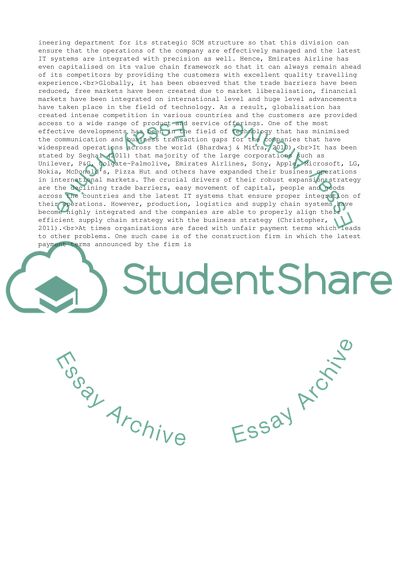Cite this document
(STRATEGIC SUPPLY MANAGEMENT Essay Example | Topics and Well Written Essays - 4000 words - 1, n.d.)
STRATEGIC SUPPLY MANAGEMENT Essay Example | Topics and Well Written Essays - 4000 words - 1. https://studentshare.org/management/1801131-strategic-supply-management
STRATEGIC SUPPLY MANAGEMENT Essay Example | Topics and Well Written Essays - 4000 words - 1. https://studentshare.org/management/1801131-strategic-supply-management
(STRATEGIC SUPPLY MANAGEMENT Essay Example | Topics and Well Written Essays - 4000 Words - 1)
STRATEGIC SUPPLY MANAGEMENT Essay Example | Topics and Well Written Essays - 4000 Words - 1. https://studentshare.org/management/1801131-strategic-supply-management.
STRATEGIC SUPPLY MANAGEMENT Essay Example | Topics and Well Written Essays - 4000 Words - 1. https://studentshare.org/management/1801131-strategic-supply-management.
“STRATEGIC SUPPLY MANAGEMENT Essay Example | Topics and Well Written Essays - 4000 Words - 1”. https://studentshare.org/management/1801131-strategic-supply-management.


